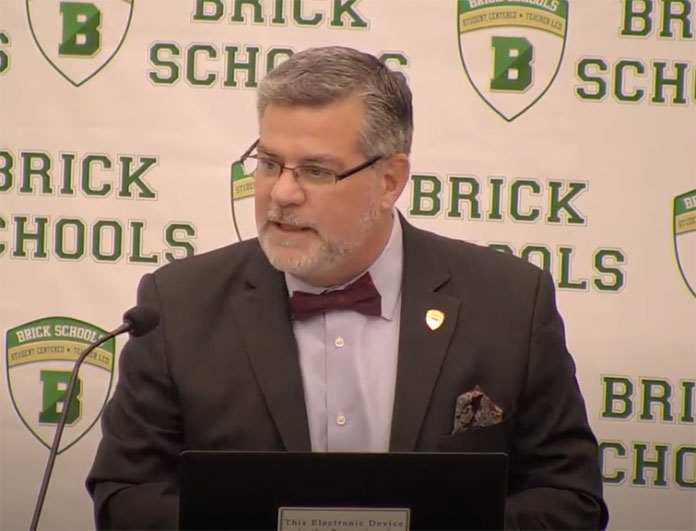
BRICK – For yet another year the Brick Township public school district is facing state funding cuts and preparing to possibly downsize its staff and school programs.
“As I stated last month, the district is in the process of finalizing the budget for 2024-25 school year. As we plan the budget for 2024-25, we have an additional loss in state aid once again under S-2 and the loss of state aid is cumulative so now that total loss is up to almost $22 million,” Superintendent Dr. Thomas Farrell said at the February 8 Board of Education meeting.
The S-2 funding formula is a state change that began several years ago. Every district receives aid, but the state started to redirect money away from districts that have seen decreasing enrollment and other factors. The exact formula has never been made public.
At the January 11 Board of Education meeting, Farrell said their standard budget increase is about $5 million just in salaries and benefits.
“Our revenue can only go up to $2.4 million in tax levy as mandated under the 2% cap. Starting approximately $6 million in the hole with the process,” Farrell said.

The final state funding numbers for the year have not been revealed yet, however Farrell is preparing for the worst.
“This reduction has multi-year impacts on Brick Schools. As I stated in previous years the district has to implement a serious of cuts to address this ongoing loss of aid. Regrettably this may result in a reduction of positions. However, we remain hopeful that retirements and attrition will help mitigate job losses,” Farrell said.
Last year, the district faced a $2.54 million cut for the 2023-24 school year. According to the NJ Department of Education, the total state aid for Brick School District last year was $14,632,033, down $2,542,260 – a 14.80% decrease from the 2022-23 school year.
Farrell said the district plans on cutting 30 positions for the 2024-25 school year. He explained that a “full time equivalent” teacher, on average costs the district about $90,000. Retirements could realize a cost savings of $30,000.
“Unfortunately, a few weeks ago I discussed with staff that the process may involve staff transfers, non-renewals of contracts, and potentially the (reduction in force), and by May 15 all non-tenured staff would receive their non-renewal letter. Staff transfers will be announced once the district has resolved all the staff removes in alignment for the 2024-25 budget,” Farrell said.
“I want people to know, too, we really do a good job here the last few years in working with our staff in helping facilitate retirements, transfers, whether it’s by certification or not, to help keep all of our employees in their position and we’ve been kind of closely successful in the loss of bodies the last few years,” Farrell added. “We want to assure everybody that with each cut made we’re committed to minimizing the impact on our students and staff. We’re grateful for the dedication of our staff and recognize their contributions that they make on a daily basis.”
Once again, elementary class sizes will go up. Farrell said trading class size in order to keep programs is one of the “transactional realities” of the state’s formula.
Despite the financial constraints, the district is actively exploring alternative revenue sources while also prioritizing the best interest of students first and their educational programs.
The district still has one year to go with S-2 and its impacts. According to Farrell, it will take the district an additional seven years to catch up and add back the resources. He explained how English language learners and the economically disadvantaged student population are increasing, and is outweighing their funding.
“This is a dilemma,” Farrell said. “To every problem there is a solution.”
Quoting the district’s Strategic Plan, Farrell said initiatives such as adopting new programs, adding interventionists, reducing class sizes, and expanding PreK are all actions to achieve future exit outcomes.
“We need your help, for all the voices. We’ve been saying this for four years to get to Trenton, to get to the Department of Education, and help make more equitable the funding that we don’t receive for our students,” Farrell said.






